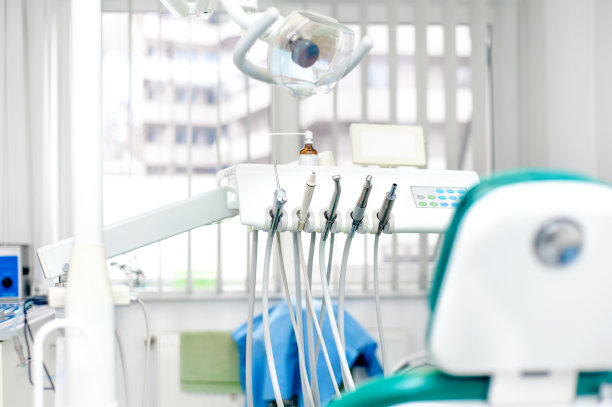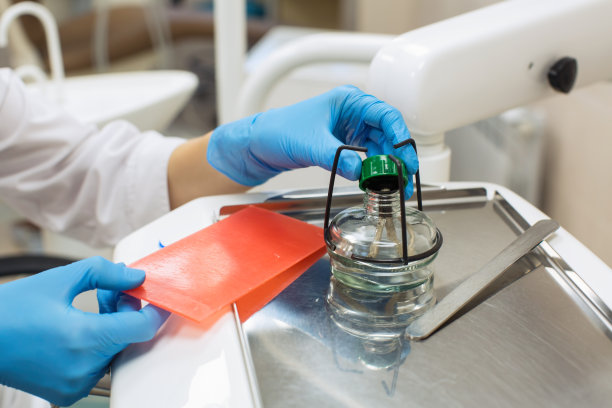Summary: Undergoing dental fillings is a common dental procedure that can significantly improve oral health. However, several essential precautions should be taken into account to maximize the benefits and ensure a smooth recovery process. This article discusses the necessary steps, including consulting with a dentist, preparing mentally and physically, following post-treatment care guidelines, and considering dietary adjustments. Each of these areas is crucial for a successful filling procedure, ultimately aiming to protect your overall oral health.
1. Importance of Consulting with Your Dentist

Before undergoing a dental filling, one of the most critical steps is to have a comprehensive discussion with your dentist. Your dentist will provide valuable information about the filling process, the various types of materials used, and the pros and cons of each option. Understanding these details can help in making an informed decision that is best suited for your dental needs.
Additionally, a thorough examination by your dentist will assess the extent of the decay and any underlying issues. This proactive approach helps ensure that the filling addresses not only the visible damage but also any potential problems lurking beneath the surface. Be open about any previous dental experiences or anxieties; your dentist can tailor the procedure to meet your comfort level.
Moreover, discussing your medical history is crucial as certain health conditions or medications might affect the procedure and healing. Providing complete and honest information will allow your dentist to manage your treatment safely and effectively.
2. Preparing Mentally and Physically
Preparation for the dental filling goes beyond physical readiness; mental preparedness is equally important. Many individuals experience anxiety about dental procedures, which can hinder relaxation and may affect the overall experience. Engaging in relaxation techniques, such as deep breathing or visualization, can significantly alleviate stress before the appointment.
Physically, its essential to follow any pre-treatment instructions given by your dentist. This may include avoiding specific medications or adjusting dietary habits leading up to the procedure. For example, taking a pain reliever prior to the appointment can help decrease discomfort during and after the filling.
Finding a supportive companion to accompany you can also provide comfort. Whether it’s a friend or family member, having someone there can make the entire experience feel less intimidating. Their presence can help distract from anxiety while also offering encouragement during the procedure.
3. Following Post-Treatment Care Guidelines
After receiving a dental filling, following post-treatment care guidelines is essential for optimal healing and maximizing the benefits. One standard recommendation is to avoid eating hard or sticky foods for at least 24 hours following the treatment, as this can disrupt the filling before it sets properly.
Another crucial aspect of recovery is managing pain and discomfort. While pain is generally minimal after the procedure, if excessive pain occurs, its essential to contact your dentist. Following any prescribed medication regimen, such as taking antibiotics or pain relief as directed, plays a vital role in recovery.
Maintaining proper oral hygiene is equally important. Gentle brushing and flossing should resume after the anesthesia wears off, but caution should be taken around the filling site to avoid irritation. Regular follow-ups with your dentist will help monitor the filling’s effectiveness and ensure that your oral health remains optimal.
4. Considering Dietary Adjustments Post-Procedure
After a dental filling, dietary adjustments can significantly impact healing and long-term oral health. For the initial couple of days, its advisable to stick to soft foods that require minimal chewing. Foods such as yogurt, mashed potatoes, and smoothies provide necessary nutrients while being gentle on the filling.
Furthermore, staying hydrated is crucial. Drinking plenty of water not only aids in overall recovery but also helps maintain good oral health. However, it’s best to avoid sugary beverages and acidic drinks, as these can contribute to further dental problems and compromise the healing process.
Lastly, moderation is key when returning to a regular diet. Allowing your mouth some time to adjust will help avoid unnecessary pressure on the new filling. Gradually reintegrating harder foods ensures that the filling is not compromised while still enjoying a balanced diet.
Summary:
In conclusion, prioritizing essential precautions before undergoing a dental filling can lead to a more successful procedure and recovery. Consulting your dentist, preparing both mentally and physically, adhering to post-treatment care guidelines, and making thoughtful dietary adjustments are crucial steps. By taking these actions seriously, patients can experience optimal oral health benefits and a smoother recovery process.
This article is compiled by Vickong Dental and the content is for reference only.
Vickong Dental
Vickong Dental is a large medical group established in Hong Kong in 2008 by professors from well-known medical universities in Guangdong and Hong Kong, as well as medical doctors from key national '985' universities (including Master's supervisors and senior professors). The chain of branches brings together expert dentists with PhDs and Master's degrees from Hong Kong and Mainland China, committed to providing high-quality dental treatment.
"Vickong Dental Practices the University Motto of 'Healing and Serving Society,' with a Stable Operation for Sixteen Years. It Has Been honored with Hong Kong Enterprise Leaders's Choice,' and is a Global Trusted Implant Center for the Nobel Implant System. Recommended by Hong Kong Metro Broadcast and Guangdong Television, it Serves Customers from Over Thirty Countries and Regions, Gaining the Trust and Favor of Citizens from the Guangdong-Hong Kong-Macau Greater Bay Area and Surrounding Cities.

Thousands of customers' unanimous praise
The most recognized and highly recommended dental service by customers in the Guangdong-Hong Kong-Macau Greater Bay Area
We Ensure You Receive Detailed Care and Attention Here
Hong Kong standards, Shenzhen prices, Your Trusted English-speaking dentists

Vickong Dental Medical-Grade Instrument Disinfection Process
Vickong Dental Medical-Grade Instrument Disinfection Process

Vickong Dental Chain: A Warm and Comfortable Environment for Treatment






Appointment Hours

Q&A
Why choose Vickong Dental?
Vickong Dental practices the university motto 「Medicine to Benefit Society」, with each branch bringing together highly qualified dentists with doctoral and master’s degrees from Hong Kong and the Mainland, and has maintained seventeen years of steady operation。Recipient of 「2024 Hong Kong Enterprise Leaders Brand」, 「2025 Hong Kong Enterprise Leaders Brand」, a Nobel Biocare Global Trusted Implant Center, and a brand recommended by Metro Radio Hong Kong and Guangdong TV。
To date, we have served customers from more than thirty countries and regions,earning exceptionally high word-of-mouth recognition and trusted recommendations from residents across the Guangdong-Hong Kong-Macao Greater Bay Area and surrounding cities
We have eight major branches in Zhuhai、Shenzhen,and a consultation and service assurance center in Hong Kong,so you can book a free consultation at any time for any questions,which is very reassuring.
If I do not accept the quotation after the CT scan, will I be charged??
No! As long as the actual treatment has not started, you will not be charged any fees.
Will there be any additional charges during the treatment process?
No, there won’t be any additional charges. Before treatment begins, we will clearly explain the treatment plan and its corresponding fees. Only after the patient agrees and signs the consent form will we proceed with the dental service.
Can I pay in Hong Kong dollars?
Yes. Vickong Dental accepts payment in Hong Kong dollars. The amount will be converted based on the exchange rate of the day, and the applicable rate will be clearly communicated to you in advance.
Can I reschedule my appointment at any time?
Yes. Please contact us via **WeChat** or **WhatsApp** as early as possible, providing your original appointment time and details, along with your preferred new date and time slot for rescheduling.













